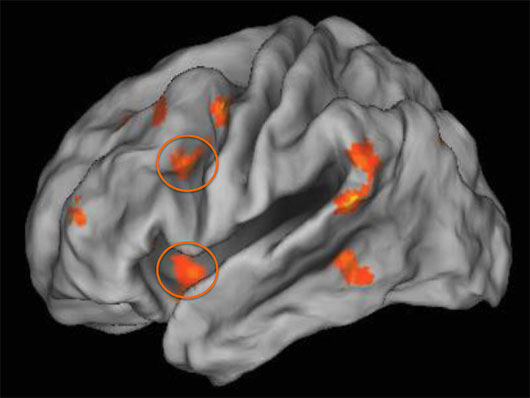Brain function is affected if children live in poverty
(Depression of childhood) and chronic stress can lead to emotional disorders in adulthood, according to a study presented online in the Proceedings of the National Academy of Sciences.
'Our findings suggest that the stress burden of growing up in poverty can be a fundamental mechanism that explains the relationship between childhood poverty and adult brain activity. ' Dr. K. Luan Phan, professor of psychiatry at the University of Illinois, Chicago School of Medicine and lead author of the study, said.
The study was conducted by researchers at UIC, Cornell University, Michigan University and Denver University.
The researchers found that subjects tested if the family had a lower income when a 9-year-old child, when the city was more active in the amygdala (amygdala) , an area in the brain. is known for its role in fear and other negative emotions. These individuals are less active in the prefrontal brain region, an area in the brain known to regulate negative emotions.
Plasmodium almonds and pre- cortical disorder disorder syndrome are associated with mood disorders including depression, anxiety, conflict and substance abuse, the study's authors said.

Phan added, we are already aware of the negative effects of poverty that can cause 'a class of increased risk factors' for children to develop physical and mental problems. reason when growing up. But it is not known how the impact of poverty in childhood can affect brain function, especially in controlling emotions . The ability to change negative emotions can help protect against the physical and psychological consequences of acute and chronic stress, he said.
The study examined the links between impoverished childhood at 9 years of age, contact with people with chronic stress throughout childhood, and brain activity in the area that regulates emotions at age 24. .
49 participants are part of a long-term study of childhood misery. Data on family income, exposure to stress factors, psychological stress responses, social emotional development and interaction between children and their parents were collected. About half of the participants come from low-income families.
Using functional magnetic resonance imaging, the researchers evaluated the brain activity of the subjects involved in the study when they performed an emotional control task. The subjects were asked to try to repress the negative emotions while viewing the photos, using a cognitive copy strategy.
'This serves as an indicator of the behavior - brain of an individual's daily ability to deal with stress and negative emotions when they confront them,' Phan said.
Perhaps the most important result of the research result is that the study shows the total stresses from childhood to adolescence - such as cramping, noisy, and social stress factors like any family stability, violence or division in the family - has identified the link between childhood poverty and forehead brain function during emotional control.
The co-author of the study is Pilyoung Kim from Denver University, Gary Evans from Cornell University and Michael Angstadt scientists, Shaun Ho, Chandra Sripada, James Swain and Israel Liberzon from the University of Michigan.
This research is supported by the National Institutes of Health National Institute of Health Research (RC2MD004767), hosting the WT Grant Foundation and several other organizations.
- Poverty can affect brain development
- Poverty affects the thinking ability of the brain
- DNA of people affected by poverty
- Miracle: Dead 4-hour pig brain is revived
- Children with shaking are at risk of developing brain injury!
- The brain is most active at age 50
- Video: Human brain size compared to other animals
- Air pollution causes impaired brain function
- Neurological transplantation enhances brain function
- The Internet changes the structure and function of the brain
- Childhood living in poverty will affect intellectual development
- The man lives normally without 90% of the brain
 Green tea cleans teeth better than mouthwash?
Green tea cleans teeth better than mouthwash? Death kiss: This is why you should not let anyone kiss your baby's lips
Death kiss: This is why you should not let anyone kiss your baby's lips What is salmonellosis?
What is salmonellosis? Caution should be exercised when using aloe vera through eating and drinking
Caution should be exercised when using aloe vera through eating and drinking